Criminal Justice (Law Enforcement & Investigations)
Do you enjoy being part of a team, taking on leadership roles and/or defending other people's rights? Then a career in this field may be for you! Criminal Justice may be a good fit for you if you like to drive vehicles, responsibly handle firearms, research and investigate, deal with physically challenging circumstances or interact with many different people.
This program will help you prepare for an exciting future career in positions ranging from local police officers, county sheriff deputies, detectives, State Police and Natural Resource Officers just to name a few. There are also many federal law enforcement careers like the Federal Bureau of Investigation, military branch police and Homeland Security positions. All careers in this field will require additional training once hired.
Students will take two one-year courses. Law Enforcement and Investigations. Students will be provided training in patrol tactical skills, criminal law and procedure and criminal investigation. They will have the opportunity to participate in live scenario application training, job shadows, law enforcement and criminal justice agency visits, community service opportunities, hands-on operation and use of law enforcement technology and equipment.
If you are self-driven and can work independently as well as part of a team to accomplish established agency goals and are willing to "Serve and Protect" the public, then Criminal Justice might be a good career choice for you.
Investigations Class Syllbus
Our mission is to provide students with the essential knowledge, skills, and work habits to excel in their careers and future learning.
Course
Investigations
National Career Cluster
Human Services Pathway
Michigan Career Pathway
Human Services
Instructor(s)
Jorge Gomez
517.244.1365
- Graduate of the 44th Mid-Michigan Police Academy
- Bachelor of Science Degree in Criminal Justice from Michigan State University
- 25 years Law Enforcement experience at the Lansing Police Department with 15 years as a violent crimes detective
- Mid-Michigan Police Academy Defensive Tactics Instructor
- American Heart Association – Basic Life Support Instructor Certification
- Baker College Criminal Justice Instructor
- ALICE School Safety Instructor
Types of Credit
- One full fourth year math credit
- One full third year science credit
- Michigan Merit Curriculum: Visual Performing and Applied Arts (VPAA), one full credit
- World Language credit
Articulation Agreements
- Davenport University
- Ferris State University
- Baker College
- Jackson College
Program Description
We will examine the fundamentals of criminal investigation such as crime scene procedures, collection and preservation of physical evidence, interviewing, interrogation, and latent investigation.
We will study the theories of why some individuals pursue a life of crime by introducing and analyzing past, present, and the future of criminology. Sociological, psychological, and biological factors are examined to determine their interaction with and impact on criminal behavior.
Special Requirements/Program Prerequisites
- Valid driver’s license to operate patrol car
Course Topics
- Criminal investigations
- Processing crime scene
- Collection of physical evidence
- Interviewing and interrogations
- Taking field notes and writing reports
- Crime lab
- Injury and death investigations
- Robbery investigations
- Burglary and larceny investigations
- Trial process
- Criminology
- Statistical data and the uniform crime reports
- Sociological / biological theories of criminology
- Psychological theories of the criminal personality
- Organizational criminality
- Analyze and assess drug, alcohol, and sex related crimes
Exit Outcomes
- Students will have a broad understanding of investigative careers
- Students will be proficient in techniques and technology skills related to criminal investigation
- Students will demonstrate the proper skills learned in crime scene processing
- Students will demonstrate leadership skills and a professional attitude
- Students will demonstrate strong communication skills, problem solving skills, confidence and strong work ethic
- Students will explain criminology and describe how it relates to the field of criminal justice
- Students will identify and discuss sociological and biological theories of criminality
Work Based Learning Opportunities
- Guest speakers
- Field trips
- Job shadows
| Essential Competency Areas: | Percentage: |
| Employability Skills (Work Habits) | 25% |
| Career Exploration / Independent Learning | 25% |
| Communication/Critical Thinking | 25% |
| Lab Skills | 25% |
| Total | 100% |
Grading Policy
- Employability Skills: Points based upon attitude, quality, professionalism, motivation, resources and attendance.
- Career Exploration: Points based on being present for classroom visits, participating in ride alongs, attending field trips, researching career opportunities.
- Communication/Critical Thinking: Grade given by instructor for work completed for the program (tests, quizzes, homework and projects.)
- Lab Skills: You will be given a grade for completing skills accurately and written exams.
A = 93-100%
B = 83-86%
C = 73-76%
D = 63-66%
A- = 90-92%
B- = 80-82%
C- = 70-72%
D- = 60-62%
B+ = 87-89%
C+ = 77-79%
D+ = 67-69%
E = 59% or below
Student Code of Conduct
Good student conduct is important for maintaining a healthy course environment. Students enrolled in the Criminal Justice program are expected to:
- Exercise self-control
- Use courteous language
- Resolve conflict in a mature manner
- Be appropriately dressed and groomed
- Follow All WTC and Criminal Justice program rules and procedures
- Be able to learn and perform in a Para-Military agency environment
- Demonstrate a positive attitude
- Take a leadership role
- Be polite
- Be cooperative
- Be a supportive teammate
- Respect the rights and feelings of others
- Behave in a manner that is a positive example and does not disrupt others
- Treat others with courtesy and respect
- Take responsibility for school property
- Respect the building, grounds, and property
- Conserve resources in the classroom
- Support the learning process
- Attend all classes regularly and on time
- Maintain equipment as instructed
- Be prepared for class
- Listen carefully to instructions
- Actively participate in class activities
The Criminal Justice Program is committed to universal learning and supporting all student’s needs. Our classroom space, routines, resources, and interactions will be as inclusive as possible. Treating each other with respect, listening to each other, having an open mind and a willingness to help each other learn is crucial to universal learning.
Strategies to provide optimal learning for all students in this course include:
- Each student can retake a test/quiz if they are not satisfied with their first attempt.
- Each student will be afforded a spot in the classroom where they can learn to the best of their ability.
- Each student will be allowed extra time as agreed upon by the instructor for class work.
- Each student will be allowed to use an audio version of assignments or tests.
- Each student will be allowed extended time on quizzes or exams as agreed upon by the instructor.
- Each student is allowed the use of a calculator when completing assessments on math related concepts.
- Each student can have time adjusted for test completion.
- Each student is allowed a copy of teachers notes on all lecture material.
- Each student is allowed the use of a computer or word processing equipment.
- Each student can have directions repeated to ensure understanding of expectations.
- Each student is allowed to ask for copy of board work to assist in their note taking.
- Each student is allowed to use a Hearing Assistance Technology system.
Law Enforcement Class Syllabus
Our mission is to provide students with the essential knowledge, skills, and work habits to excel in their careers and future learning.
Course
Law Enforcement
National Career Cluster
Human Services Pathway
Michigan Career Pathway
Human Services
Instructor
Noel Garcia, Jr.
517.244.1385
- Associates of Science in Criminal Justice from Lansing Community College
- Graduate of the 45th Mid-Michigan Police Academy
- Michigan Commission on Law Enforcement Standards Firearms Instructor
- Bachelor of Science Degree in Criminal Justice from Michigan State University
- Master of Science Degree in Criminal Justice from Michigan State University
- Graduate of 1st Staff and Command class at Michigan State University
- 25 years Law Enforcement experience at the Lansing Police Department with 15 years as a violent crimes detective
- PPCT Defensive Tactics Instructor Certification
- American Heart Association – Basic Life Support Instructor Certification
Types of Credit
- One full fourth year math credit
- One full third year science credit
- Michigan Merit Curriculum: Visual Performing and Applied Arts (VPAA), one full credit
- Second year World Language credit
Articulation Agreements
- Lansing Community College
- Davenport University
- Ferris State University
- Baker College
- Jackson College
Program Description
The opportunities for students in the Law Enforcement program include live application of law enforcement techniques and skills, hands-on operation and use of law enforcement technology and equipment, and career development. Students will interact with professionals from federal, state, county and local law enforcement agencies. In addition, they will learn about post-secondary opportunities by visits with universities, colleges and military personnel. Career exploration, employability skills, technology skills, and the academic skills necessary to succeed in the workplace and in advanced education are integrated into the program curriculum.
Special Requirements/Program Prerequisites
- Valid driver’s license to operate patrol car
Course Topics
- Law enforcement traits
- Patrol skills foundations
- Tactical skills
- Patrol operations
- Criminal law & procedures
- Law enforcement agencies & functions
- Laws of arrest
- Juvenile Justice
- Criminal Justice
- Prosecution process
Exit Outcomes
- Students will have a broad understanding of Law Enforcement (LE) careers
- Students will be proficient in techniques and technology skills related to LE
- Students will demonstrate leadership skills and a professional attitude
- Students will demonstrate strong communication skills, problem solving skills, confidence and strong work ethic
Work Based Learning Opportunities
- Guest speakers
- Field trips
- Job shadows
| Assignment/Project | Percentage |
|---|---|
| Work Habits (includes attendance) | 35% |
| Academic Assignments | 25% |
| Skills | 40% |
| Total | 100% |
- Work Habits: Points based upon attitude, quality, professionalism, motivation, resources and attendance.
- Academic Assignments (Tests, quizzes, homework, dailies, math, projects): your instructor may choose to give you a grade for all classroom work you do for the program.
- Skills: you will be given a grade for completing all skills accurately and skills written exams
A = 93-100%
B = 83-86%
C = 73-76%
D = 63-66%
A- = 90-92%
B- = 80-82%
C- = 70-72%
D- = 60-62%
B+ = 87-89%
C+ = 77-79%
D+ = 67-69%
E = 59% or below
Student Code of Conduct
Good student conduct is important for maintaining a healthy course environment. Students enrolled in the Law Enforcement program are expected to:
- Exercise self-control
- Use courteous language
- Resolve conflict in a mature manner
- Be appropriately dressed and groomed
- Follow All WTC and Law Enforcement program rules and procedures
- Be able to learn and perform in a Para-Military agency environment
- Demonstrate a positive attitude
- Take a leadership role
- Be polite
- Be cooperative
- Be a supportive teammate
- Respect the rights and feelings of others
- Behave in a manner that is a positive example and does not disrupt others
- Treat others with courtesy and respect
- Take responsibility for school property
- Respect the building, grounds, and property
- Conserve resources in the classroom
- Support the learning process
- Attend all classes regularly and on time
- Maintain equipment as instructed
- Be prepared for class
- Listen carefully to instructions
- Actively participate in class activities
The Criminal Justice Program is committed to universal learning and supporting all student’s needs. Our classroom space, routines, resources, and interactions will be as inclusive as possible. Treating each other with respect, listening to each other, having an open mind and a willingness to help each other learn is crucial to universal learning.
Strategies to provide optimal learning for all students in this course include:
- Each student can retake a test/quiz if they are not satisfied with their first attempt.
- Each student will be afforded a spot in the classroom where they can learn to the best of their ability.
- Each student will be allowed extra time as agreed upon by the instructor for class work.
- Each student will be allowed to use an audio version of assignments or tests.
- Each student will be allowed extended time on quizzes or exams as agreed upon by the instructor.
- Each student is allowed the use of a calculator when completing assessments on math related concepts.
- Each student can have time adjusted for test completion.
- Each student is allowed a copy of teachers notes on all lecture material.
- Each student is allowed the use of a computer or word processing equipment.
- Each student can have directions repeated to ensure understanding of expectations.
- Each student is allowed to ask for copy of board work to assist in their note taking.
- Each student is allowed to use a Hearing Assistance Technology system.
Photos from the Criminal Justice program . . .
-
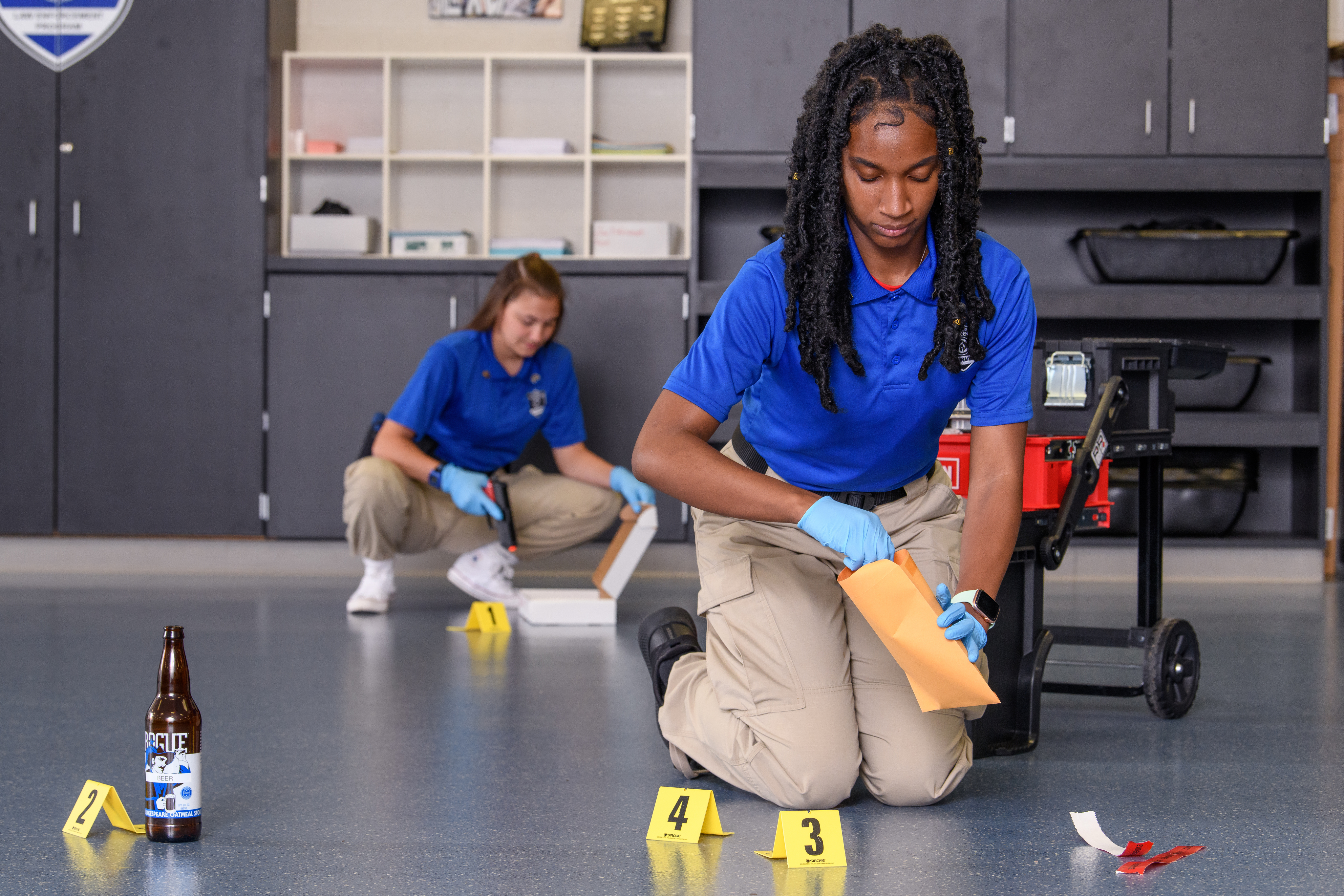 Click to see a larger version
Skip to end of gallery
Skip to start of gallery
Click to see a larger version
Skip to end of gallery
Skip to start of gallery
-
 Click to see a larger version
Skip to end of gallery
Skip to start of gallery
Click to see a larger version
Skip to end of gallery
Skip to start of gallery
-
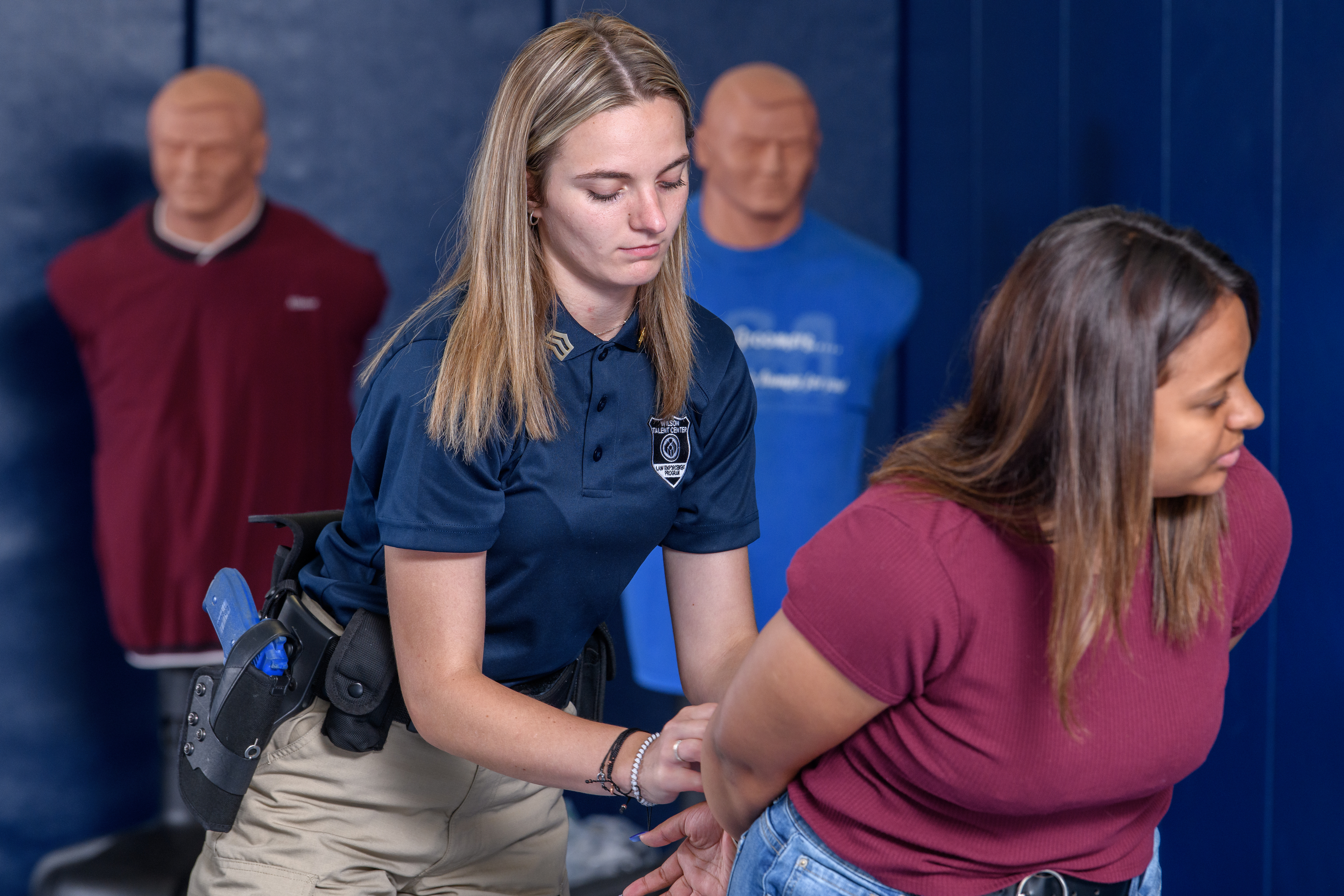 Click to see a larger version
Skip to end of gallery
Skip to start of gallery
Click to see a larger version
Skip to end of gallery
Skip to start of gallery
-
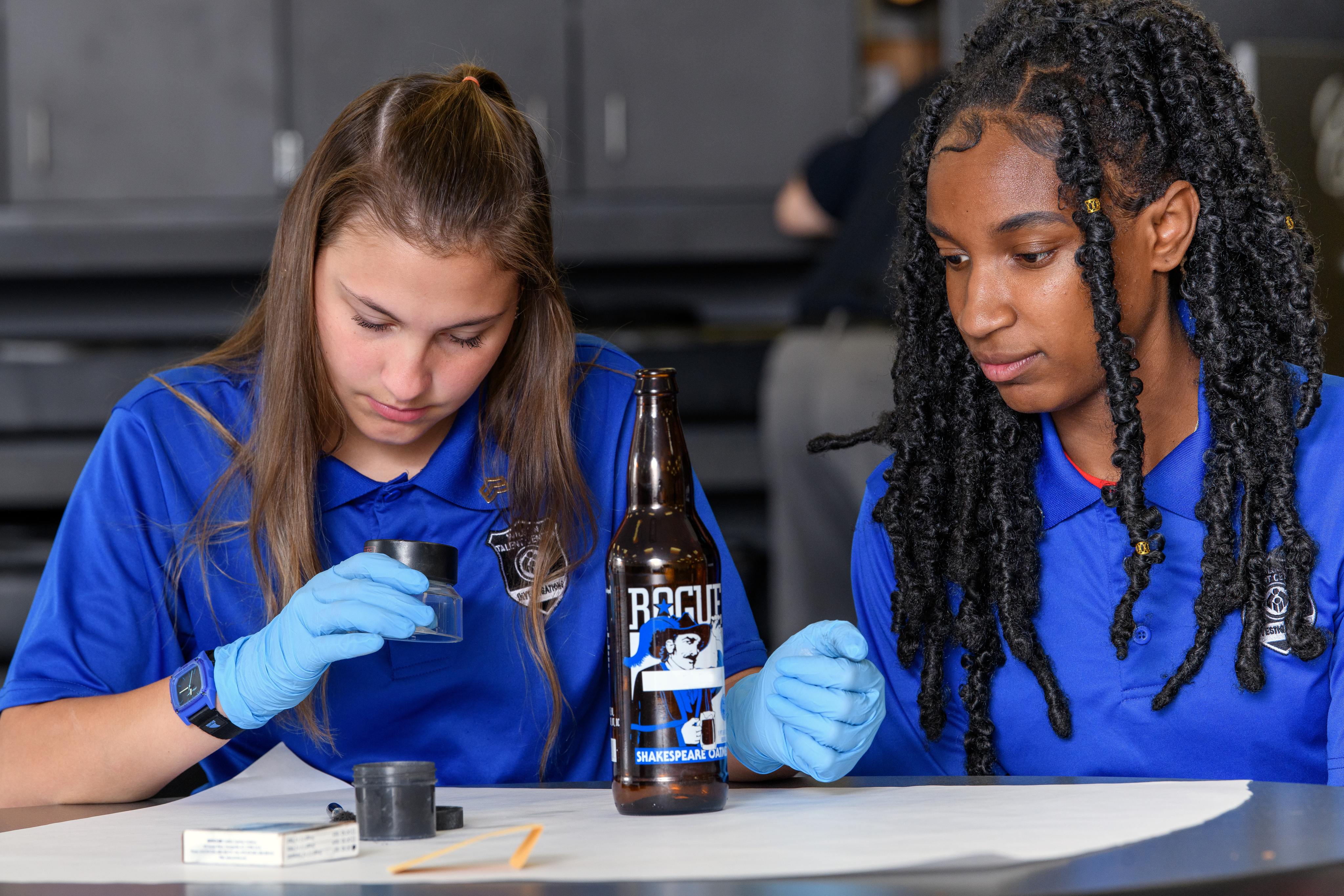 Click to see a larger version
Skip to end of gallery
Skip to start of gallery
Click to see a larger version
Skip to end of gallery
Skip to start of gallery
-
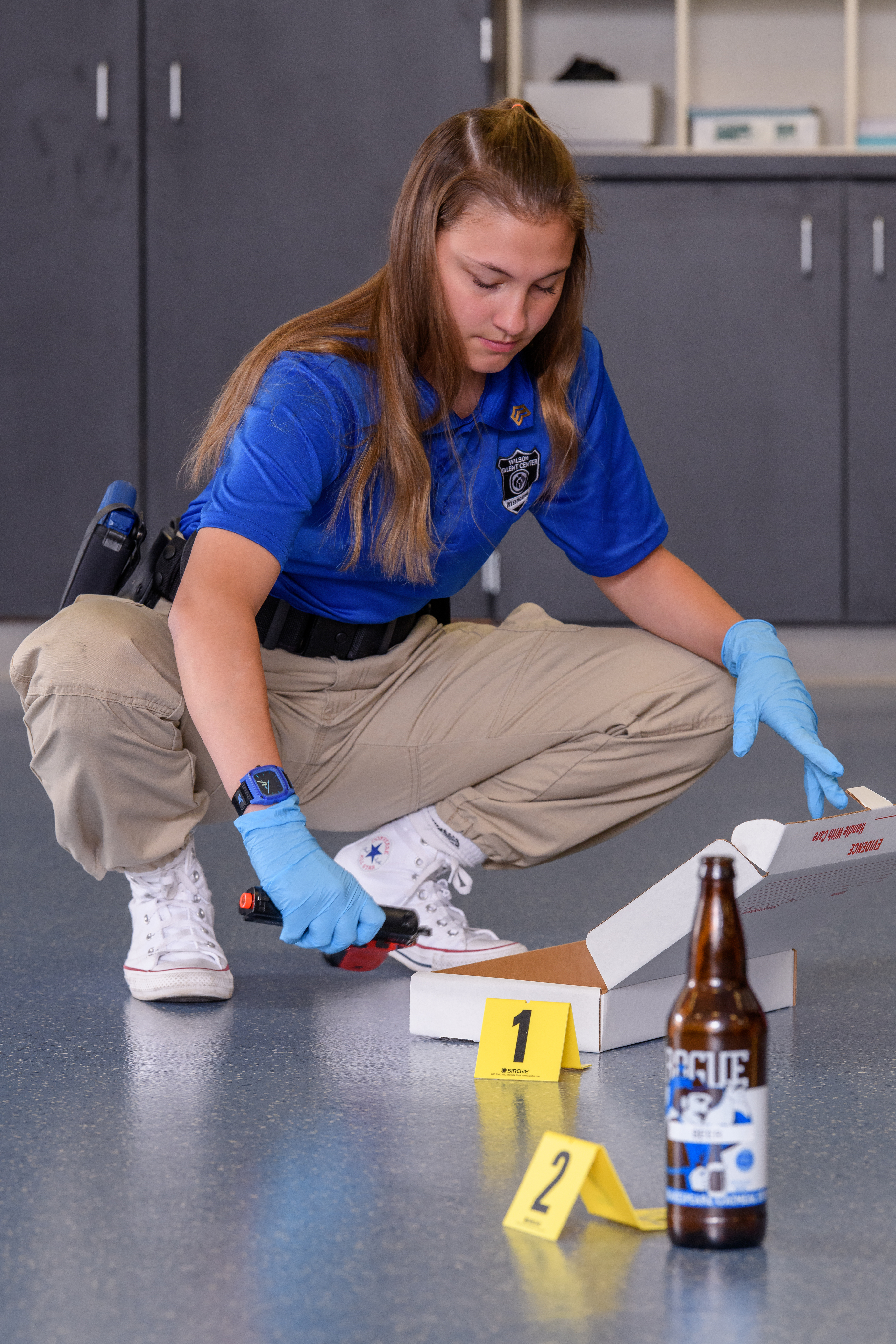 Click to see a larger version
Skip to end of gallery
Skip to start of gallery
Click to see a larger version
Skip to end of gallery
Skip to start of gallery
-
 Click to see a larger version
Skip to end of gallery
Skip to start of gallery
Click to see a larger version
Skip to end of gallery
Skip to start of gallery
-
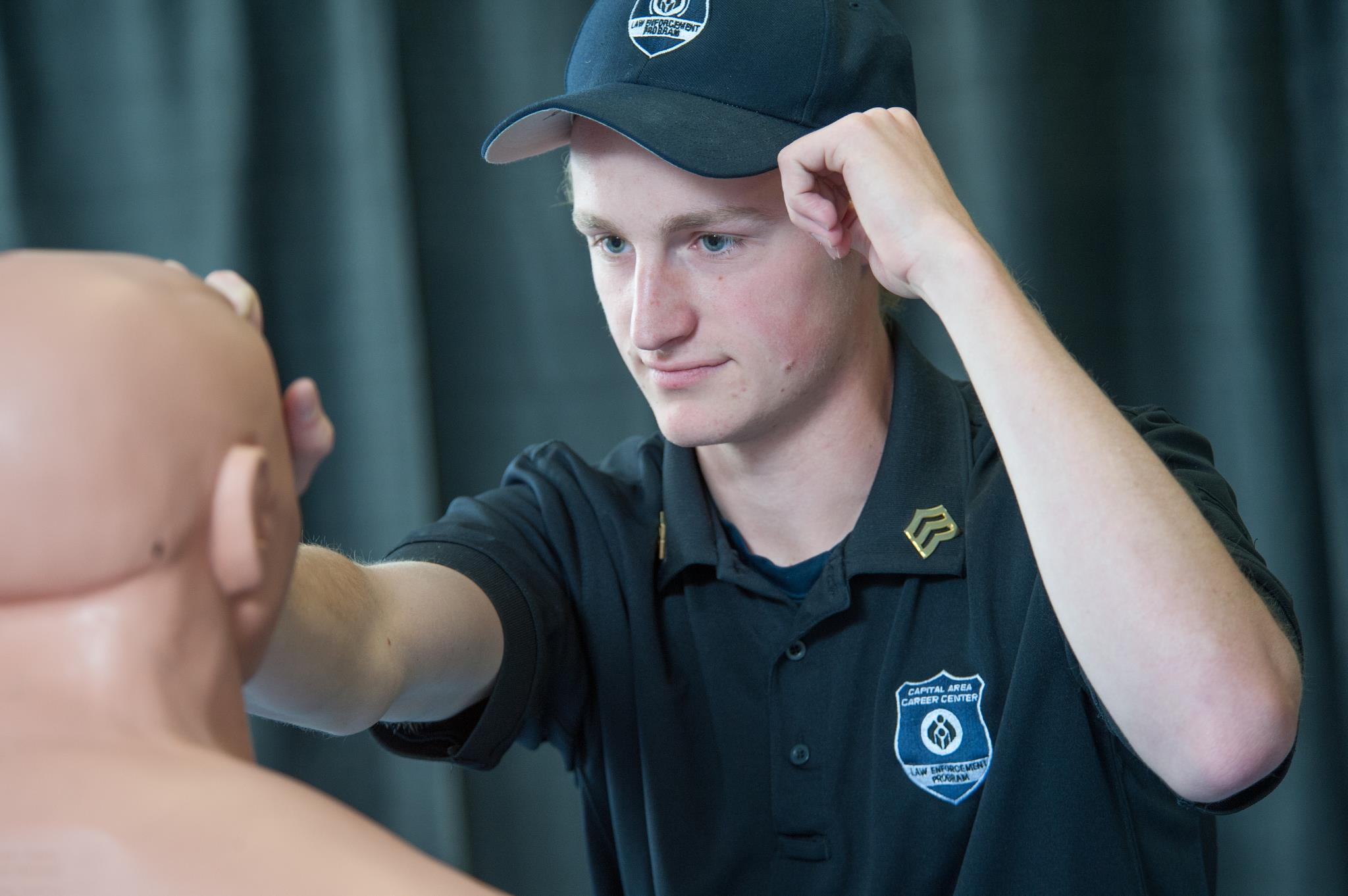 Click to see a larger version
Skip to end of gallery
Skip to start of gallery
Click to see a larger version
Skip to end of gallery
Skip to start of gallery
-
 Click to see a larger version
Skip to end of gallery
Skip to start of gallery
Click to see a larger version
Skip to end of gallery
Skip to start of gallery
-
 Click to see a larger version
Skip to end of gallery
Skip to start of gallery
Click to see a larger version
Skip to end of gallery
Skip to start of gallery
Criminal Justice Program Virtual Tour
Student Testimonials
The following music was used for this media project:
Music: Spy Story by WinnieTheMoog
Free download: filmmusic.io/song/6032-spy-story
License (CC BY 4.0): filmmusic.io/standard-license
About Criminal Justice
1-2 year program
Offered AM and PM
Skills Students Leave With:
Teamwork
Problem Solving
Crime Scene Investigation
Physical and Mental Fitness
Patrol Vehicle Operation
Police Technology & Equipment Operation
